- Home
- H. Beam Piper
Rebel Raider Page 8
Rebel Raider Read online
Page 8
* * *
While they were eating, the house was surrounded by Union cavalry.Mosby rushed to the back door, to find the backyard full of soldiers.He started for the front door, but as he did, it burst open and anumber of Yankees, officers and men, entered the house. At the sametime, the soldiers behind, having seen the back door open and shut,began firing at the rear windows, and one bullet hit Mosby in theabdomen. In the confusion, with the women of the Lake familyscreaming, the soldiers cursing, and bullets coming through thewindows, the kitchen table was overturned and the lights extinguished.Mosby in the dark, managed to crawl into a first-floor bedroom, wherehe got off his tell-tale belt and coat, stuffing them under the bed.Then he lay down on the floor.
After a while, the shooting outside stopped, the officers returned,and the candles were relighted. The Union officers found Mosby on thefloor, bleeding badly, and asked the family who he was. They said, ofcourse, that they did not know, and neither did Tom Love--he was onlya Confederate officer on his way to rejoin his command, who hadstopped for a night's lodging. There was a surgeon with the Uniondetachment. After they got most of Mosby's clothes off and put him onthe bed, he examined the wounded Confederate and pronounced his woundmortal. When asked his name and unit, Mosby, still conscious, hastilyimprovised a false identity, at the same time congratulating himselfon having left all his documents behind when starting on this scoutingtrip. Having been assured, by medical authority, that he was as goodas dead, the Union officers were no longer interested in him and soonwent away.
* * * * *
Fortunately, on his visit to Lee's headquarters, Mosby had met an oldschoolmate, a Dr. Montiero, who was now a surgeon with the ConfederateArmy, and, persuading him to get a transfer, had brought him back withhim. Montiero's new C.O. was his first patient in his new outfit.Early the next morning, he extracted the bullet. The next night Mosbywas taken to Lynchburg.
Despite the Union doctor's pronouncement of his impending death, Mosbywas back in action again near the end of February, 1865. His returnwas celebrated with another series of raids on both sides of themountains. It was, of course, obvious to everybody that the sands ofthe Confederacy were running out, but the true extent of the debaclewas somewhat obscured to Mosby's followers by their own immediatesuccesses. Peace rumors began drifting about, the favorite item ofwish-thinking being that the Union government was going to recognizethe Confederacy and negotiate a peace in return for Confederate helpin throwing the French out of Mexico. Of course, Mosby himself neverbelieved any such nonsense, but he continued his attacks as thoughvictory were just around the corner. On April 5, two days after theUnion army entered Richmond, a party of fifty Mosby men caught theirold enemies, the Loudoun Rangers, in camp near Halltown and beat thembadly. On April 9, the day of Lee's surrender, "D" Company and thenewly organized "H" Company fired the last shots for the Forty-ThirdVirginia in a skirmish in Fairfax County. Two days later, Mosbyreceived a message from General Hancock, calling for his surrender.
He sent a group of his officers--William Mosby, Sam Chapman, WalterFrankland and Dr. Montiero--with a flag of truce, and, after severalother meetings with Hancock, the command was disbanded and most of themen went in to take the parole.
When his armistice with Hancock expired, Mosby found himself with onlyabout forty irreconcilables left out of his whole command. As GeneralJoe Johnston had not yet surrendered, he did not feel justified ingetting out of the fight, himself. With his bloodied but unbowedhandful, he set out on the most ambitious project of his entiremilitary career--nothing less than a plan to penetrate into Richmondand abduct General Grant. If this scheme succeeded, it was hisintention to dodge around the Union Army, carry his distinguishedprisoner to Johnston, and present him with a real bargaining point fornegotiating terms.
They reached the outskirts of Richmond and made a concealed campacross the river, waiting for darkness. In the meanwhile, two of theparty, both natives of the city, Munson and Cole Jordan, went in toscout. Several hours passed, and neither returned. Mosby feared thatthey had been picked up by Union patrols. He was about to send anolder man, Lieutenant Ben Palmer, when a canal-boat passed, and,hailing it, they learned of Johnston's surrender.
That was the end of the scheme to kidnap Grant. As long as aConfederate force was still under arms, it would have been alegitimate act of war. Now, it would be mere brigandage, and Mosby hadno intention of turning brigand.
So Mosby returned to Fauquier County to take the parole. For him, thefighting was over, but he was soon to discover that the war was not.At that time, Edwin M. Stanton was making frantic efforts toinculpate as many prominent Confederates as possible in the Boothconspiracy, and Mosby's name was suggested as a worthy addition toStanton's long and fantastic list of alleged conspirators. A witnesswas produced to testify that Mosby had been in Washington on the nightof the assassination, April 14. At that time, Stanton was able toproduce a witness to almost anything he wanted to establish.Fortunately, Mosby had an alibi; at the time in question, he had beenat Hancock's headquarters, discussing armistice terms; even Stantoncouldn't get around that.
However, he was subjected to considerable petty persecution, and oncehe was flung into jail without charge and held incommunicado. His wifewent to Washington to plead his case before President Johnson, whotreated her with a great deal less than courtesy, and then beforeGeneral Grant, who promptly gave her a written order for her husband'srelease.
Then, in 1868, he did something which would have been social andpolitical suicide for any Southerner with a less imposing war record.He supported Ulysses S. Grant for President. It was about asunexpected as any act in an extremely unconventional career, and, asusual, he had a well-reasoned purpose. Grant, he argued, was aprofessional soldier, not a politician. His enmity toward the Southhad been confined to the battlefield and had ended with the war. Hehad proven his magnanimity to the defeated enemy, and as President, hecould be trusted to show fairness and clemency to the South.
While Virginia had not voted in the election of 1868, there is noquestion that Mosby's declaration of support helped Grant, and Grantwas grateful, inviting Mosby to the White House after his inaugurationand later appointing him to the United States consulate at Hong Kong.After the expiration of his consular service, Mosby resumed his lawpractice, eventually taking up residence in Washington. He found timeto write several books--war reminiscences and memoirs, and a volume invindication of his former commander, Jeb Stuart, on the Confederatecavalry in the Gettysburg campaign. He died in Washington, at the ageof eighty-three, in 1916.
The really important part of John Mosby's career, of course, was thetwo years and three months, from January, 1863, to April, 1865, inwhich he held independent command. With his tiny force--it neverexceeded 500 men--he had compelled the Union army to employ at leastone and often as high as three brigades to guard against hisdepredations, and these men, held in the rear, were as much out of thewar proper as though they had been penned up in Andersonville or LibbyPrison.
In addition to this, every northward movement of the Confederate Armyafter January, 1863, was accompanied by a diversionary operation ofMosby's command, sometimes tactically insignificant but alwayscontributing, during the critical time of the operation, to theuncertainty of Union intelligence. Likewise, every movement to thesouth of the Army of the Potomac was harassed from behind.
* * * * *
It may also be noted that Sheridan, quite capable of dealing with themenace of Stuart, proved helpless against the Mosby nuisance,although, until they were wiped out, Blazer's Scouts were the mostefficient anti-Mosby outfit ever employed. In spite of everything thatwas done against them, however, Mosby's Rangers stayed in businesslonger than Lee's army, and when they finally surrendered, it was notbecause they, themselves, had been defeated, but because the war hadbeen literally jerked out from under them.
Mosby made the cavalry a formidable amalgamation of fire power andmobility and his influence on mili
tary history was felt directly, andsurvived him by many years. In his last days, while living inWashington, the old Confederate guerrilla had a youthful friend, ayoung cavalry lieutenant fresh from West Point, to whom he enjoyedtelling the stories of his raids and battles and to whom he preachedhis gospel of fire and mobility. This young disciple of Mosby's oldage was to make that gospel his own, and to practice it, later, withgreat success. The name of this young officer was George S. Patton,Jr.--H. Beam Piper
* * * * *
Jeb Stuart left John Singleton Mosby behind Northern lines "to look after loyal Confederate people." But before the war was over, Mosby did a lot more than that....
A True Book-Length Feature
* * * * *

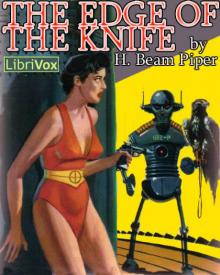 The Edge of the Knife
The Edge of the Knife Genesis
Genesis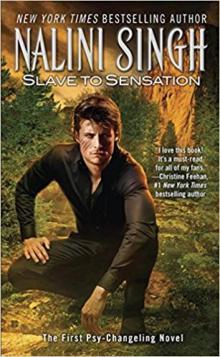 A Slave is a Slave
A Slave is a Slave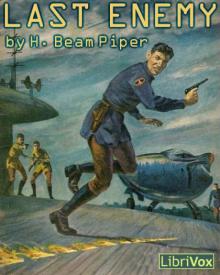 Last Enemy
Last Enemy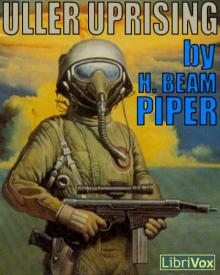 Uller Uprising
Uller Uprising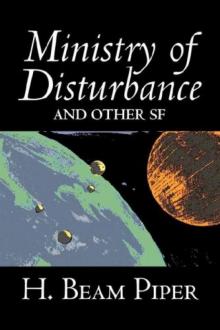 Ministry of Disturbance
Ministry of Disturbance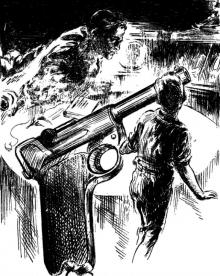 Time and Time Again
Time and Time Again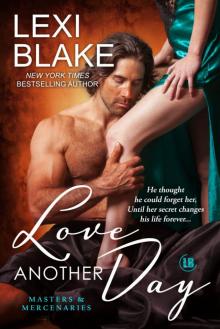 The Mercenaries
The Mercenaries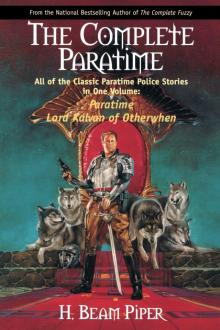 Police Operation
Police Operation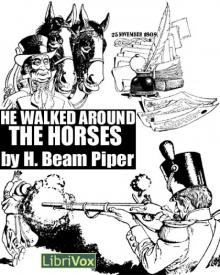 He Walked Around the Horses
He Walked Around the Horses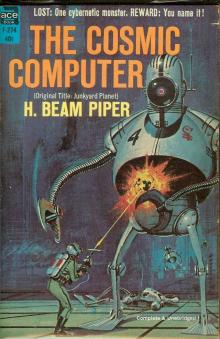 Time Crime
Time Crime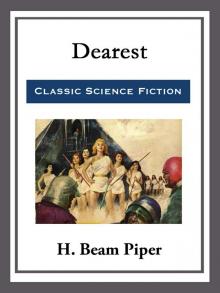 Dearest
Dearest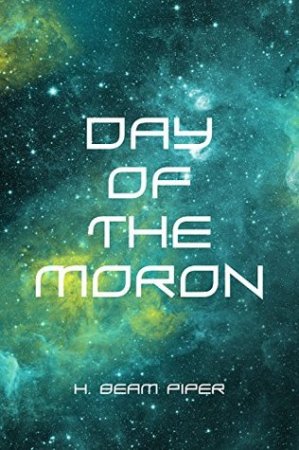 Day of the Moron
Day of the Moron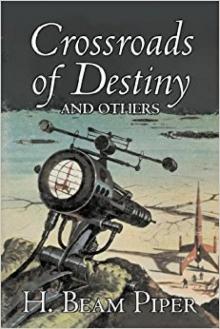 Crossroads of Destiny
Crossroads of Destiny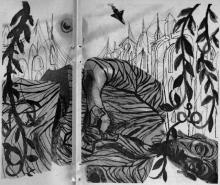 Graveyard of Dreams
Graveyard of Dreams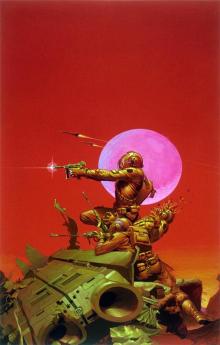 The Cosmic Computer
The Cosmic Computer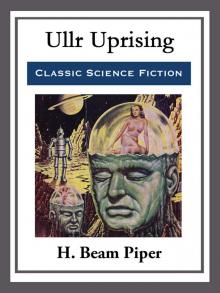 Ullr Uprising
Ullr Uprising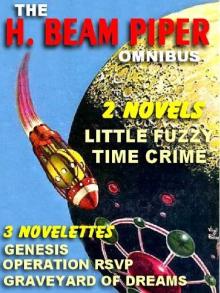 Operation R.S.V.P.
Operation R.S.V.P.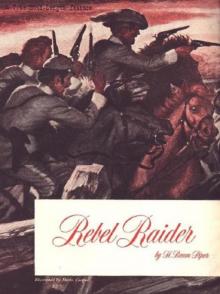 Rebel Raider
Rebel Raider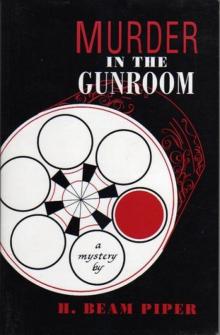 Murder in the Gunroom
Murder in the Gunroom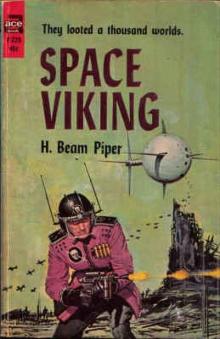 Space Viking
Space Viking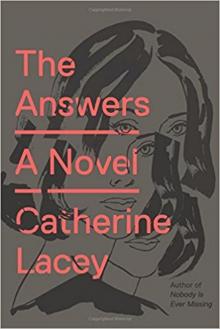 The Answer
The Answer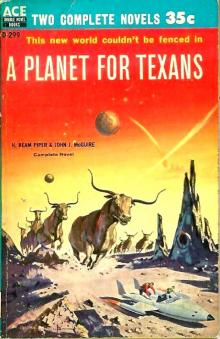 A Planet for Texans (aka Lone Star Planet)
A Planet for Texans (aka Lone Star Planet)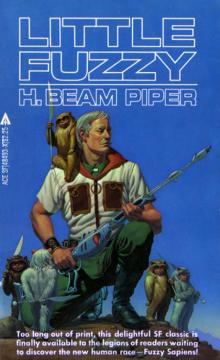 Little Fuzzy
Little Fuzzy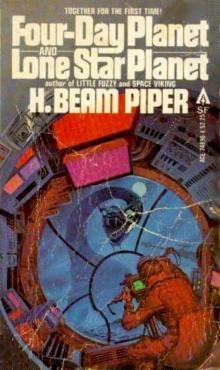 Four-Day Planet
Four-Day Planet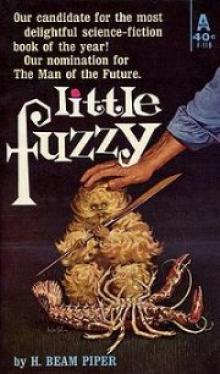 Little Fuzzy f-1
Little Fuzzy f-1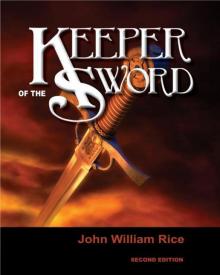 Keeper
Keeper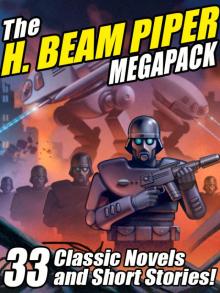 The H. Beam Piper Megapack
The H. Beam Piper Megapack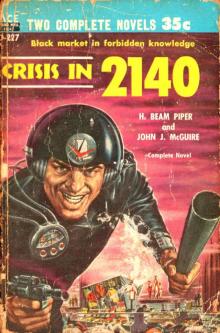 H. Beam Piper
H. Beam Piper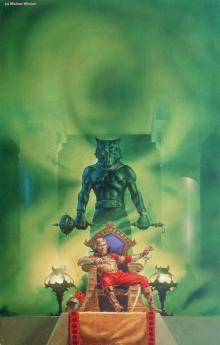 Lord Kalvan of Otherwhen
Lord Kalvan of Otherwhen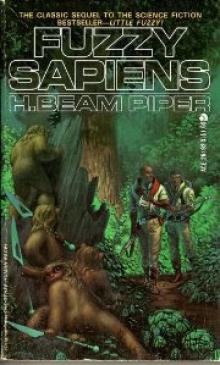 Fuzzy Sapiens f-2
Fuzzy Sapiens f-2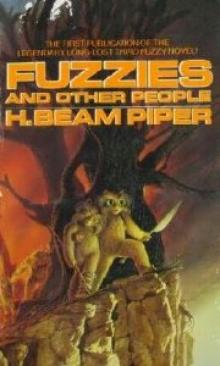 Fuzzies and Other People f-3
Fuzzies and Other People f-3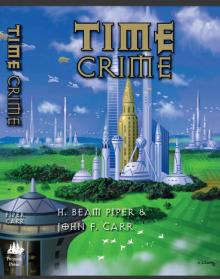 TIME PRIME
TIME PRIME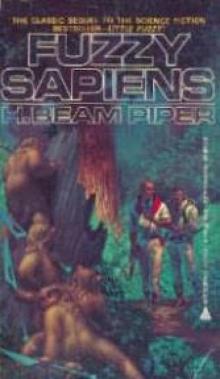 Fuzzy Sapiens
Fuzzy Sapiens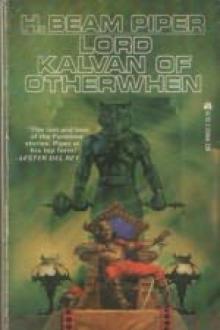 Lord Kalvan of Otherwhen k-1
Lord Kalvan of Otherwhen k-1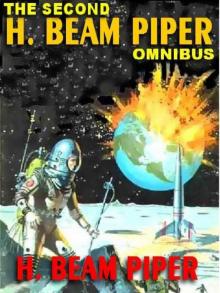 The Second H. Beam Piper Omnibus
The Second H. Beam Piper Omnibus